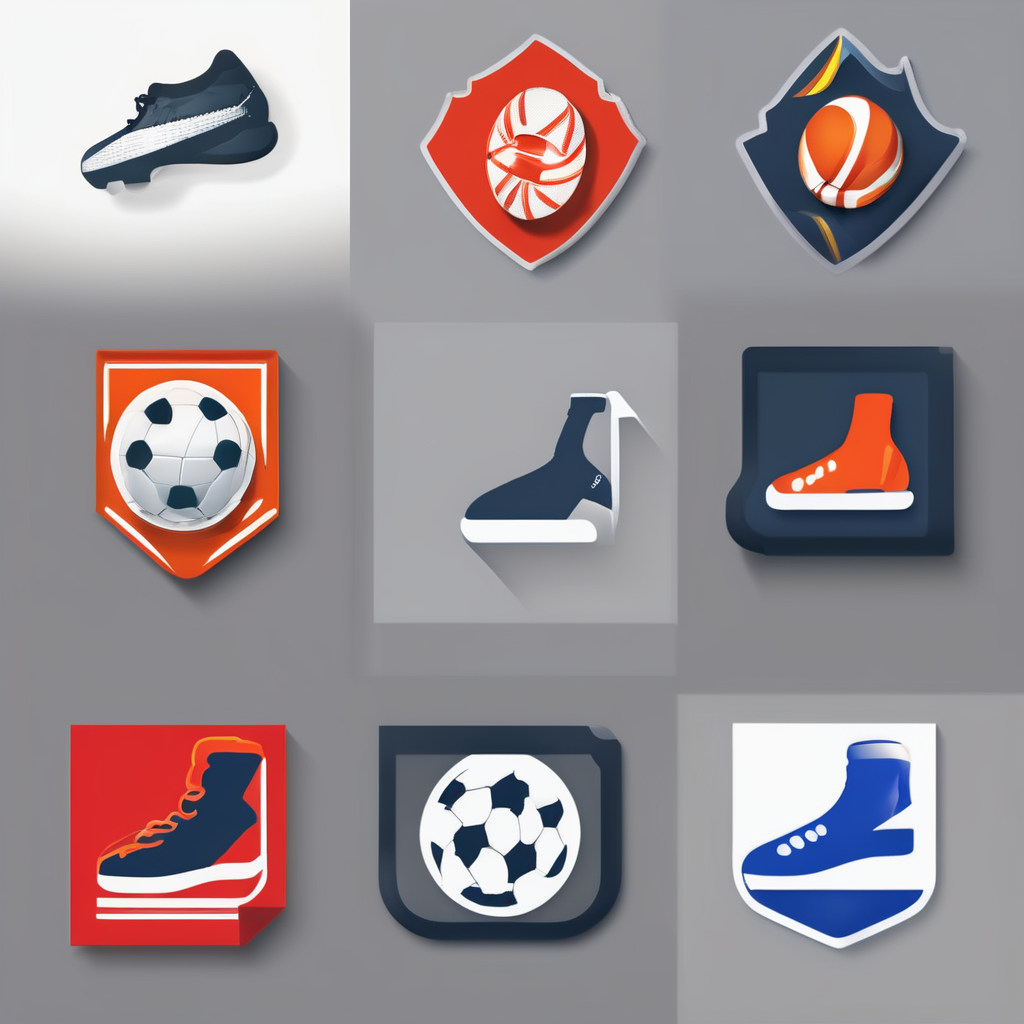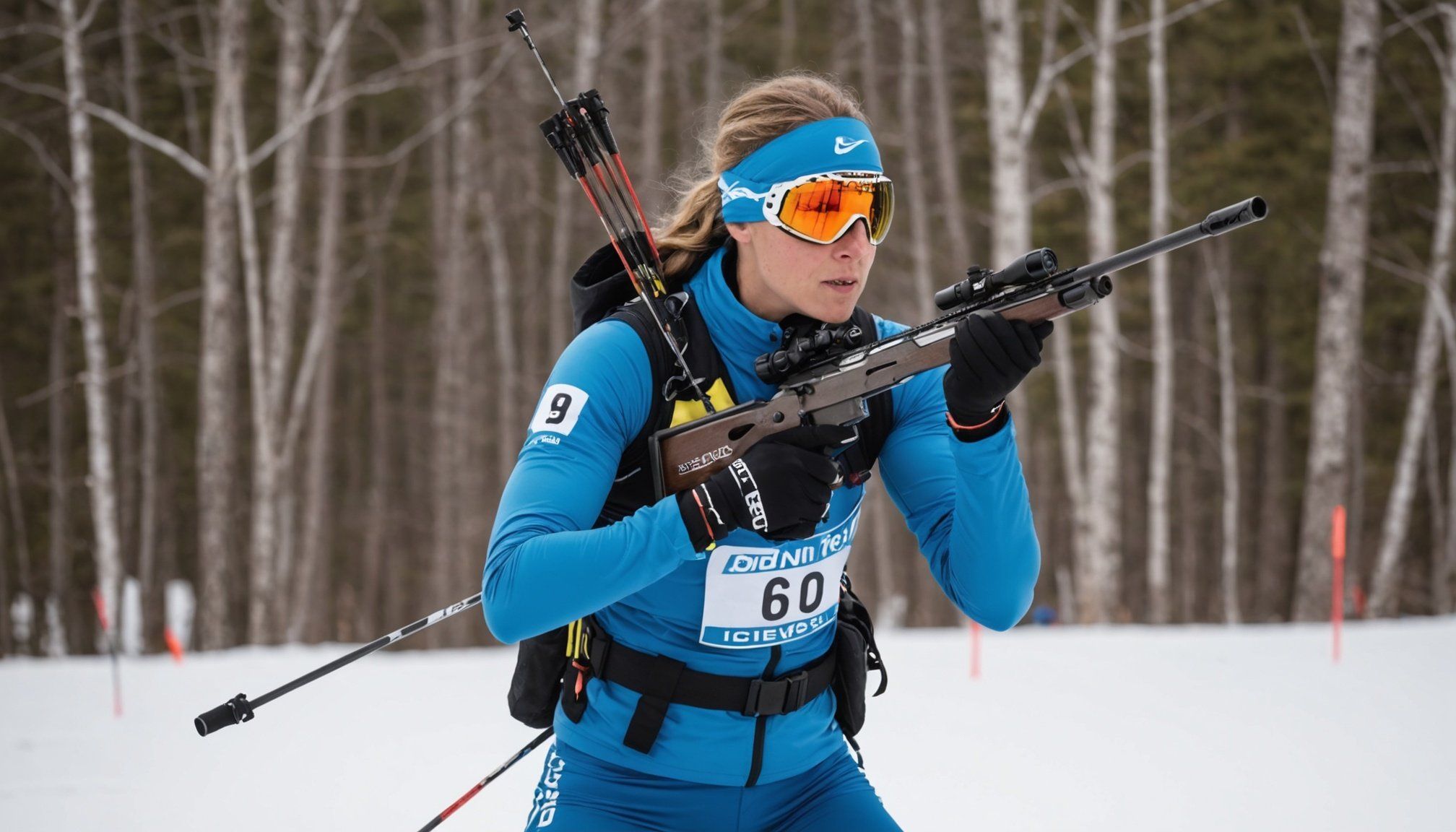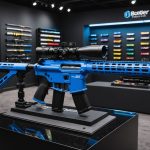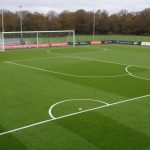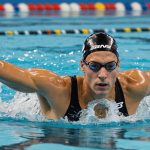Importance of Mental Training in Biathlon
In biathlon, achieving high shooting accuracy requires more than just physical prowess; mental training is equally crucial. The psychological components of biathlon play a significant role in performance, as athletes often face intense pressure during competitions. To enhance their shooting skills, biathletes integrate mental strategies into their regular training regimen.
Role of Mental Preparedness
Mental preparedness is essential for achieving accuracy in biathlon shooting. Athletes must maintain focus under stress, manage their emotions, and stay calm during high-stakes moments. This involves honing several psychological skills and understanding how one’s mind can impact performance.
In the same genre : Unlocking cornering excellence: essential techniques for motocross riders to elevate race performance
Incorporating Mental Drills
Integrating mental drills into training offers numerous benefits. These drills can improve concentration, help control anxiety, and ultimately lead to more consistent shooting results. Regular practice of mental exercises allows athletes to develop skills that directly translate to better performance during competitions.
For biathletes, the importance of mental fortitude cannot be overstated. By prioritising biathlon psychology, athletes can enhance their shooting accuracy and overall performance. Emphasizing mental training in biathlon can help competitors reach new levels of success on the track.
Have you seen this : Unlocking bowling success: key technique tweaks for pros navigating varied lane conditions
Essential Mental Drills for Shooting Accuracy
In the demanding sport of biathlon, mastering essential mental drills can significantly enhance a biathlete’s overall performance and shooting accuracy.
Visualization Techniques
Visualization serves as a powerful tool in biathlete training, allowing athletes to mentally rehearse shooting techniques without firing a shot. By imagining successful shots under various conditions, athletes strengthen their neuromuscular pathways. It refines both their aim and confidence. Visualizing the sequence of movements in shooting can help biathletes respond efficiently, even amid competition pressure.
Breathing and Relaxation Exercises
Controlled breathing and relaxation techniques are crucial mental drills that aid in reducing anxiety before shooting. These exercises help biathletes calm their mind and body, aligning their focus with their target. Progressive muscle relaxation involves tensing and releasing different muscle groups to achieve a state of calmness. This can diminish performance anxiety and steadies the shot.
Focus and Concentration Drills
To maintain concentration, focus drills prove invaluable. Techniques like staring at a static object or performing tasks under timed pressure help biathletes train their brain to ignore distractions. This mental discipline is crucial; maintaining sharp focus ensures biathletes achieve shooting accuracy, particularly crucial during competition.
Step-by-Step Guide to Mental Drills
For biathletes aiming to refine their mental preparation, integrating structured shooting drills into their routine is key. Here’s how to make the most of these drills:
-
Visualization: Start by spending 10-15 minutes daily imagining a perfect shot. Close your eyes and mentally rehearse each step, from stabilizing your stance to pulling the trigger. This exercise will strengthen neural connections related to the physical act, enhancing shooting techniques.
-
Breathing: Practice diaphragmatic breathing to mitigate pre-shoot anxiety. Inhale deeply through your nose, hold briefly, then exhale slowly through your mouth. Do this for 5-minute intervals, focusing on relaxing your body and clearing distractions.
-
Focus: Perform concentration drills by staring at a fixed point. Begin with 2-minute sessions, gradually increasing as your focus improves. This will train your mind to maintain attentive during shooting, especially under competition stress.
Include these practical exercises in your training sessions, aiming for at least three times per week. Consistent practice will train your mind to perform efficiently under pressure, promoting shooting accuracy.
Psychological Aspects of Shooting in Biathlon
Shooting psychology is crucial for excelling in biathlon, a sport that demands precision and mental toughness. Overcoming performance anxiety during competitions is essential to maintain composure and achieve optimal results. Anxiety can disrupt focus, making it imperative for athletes to manage stress effectively. Techniques such as visualization and controlled breathing play a role in mitigating anxiety’s impact.
Developing mental toughness involves regular practice, fostering resilience in athletes. By engaging in mental drills, biathletes can prepare for the unpredictable nature of competitions. These drills help athletes remain steady, even under immense pressure, increasing their chances of success.
Psychological adaptations from consistent training in mental drills are profound. Athletes often report improved confidence and ability to focus, allowing them to perform at their best. The combination of mental training and physical prowess creates well-rounded biathletes, ready to take on challenges presented by the sport.
Incorporating these psychological strategies into daily practice can significantly affect one’s performance. Recognising the importance of mental training, biathletes can leverage these skills to enhance their shooting accuracy and navigate the mental demands of biathlon.
Success Stories and Testimonials
Understanding the profound impact of mental training on shooting accuracy, many biathletes have shared their success stories, revealing a clear correlation between mental drills and performance enhancements.
Interviews with Experienced Biathletes
Interviews with seasoned athletes highlight how meticulous biathlete training on mental drills, like visualization techniques and controlled breathing, have honed their precision. Biathlete success often stems from integrating mental preparedness into their routine, enhancing confidence under competition pressure.
Case Studies of Successful Mental Drills
Several training outcomes showcase the significance of structured mental exercises. Athletes report marked improvements in shooting techniques after consistently practicing mental drills. Each case underscores how personalized training regimens tailored to individual psychological needs can drive performance improvements.
Insights on Overcoming Challenges
Personal experiences from numerous athletes illuminate the power of mental strategies in surmounting challenges. These stories provide insight into overcoming the psychological hurdles faced during high-stress competitions. From tackling performance anxiety to developing resilience, biathletes attribute mental fortitude as a critical element in their toolkit.
These testimonials reinforce the burgeoning recognition of biathlon psychology’s pivotal role in modern training, establishing a robust link between mental training and tangible athletic success.
Visual Aids and Resources for Mental Drills
For biathletes keen on improving their mental drills, using the right resources is essential. Instructional videos offer a comprehensive approach to visual learning, breaking down complex techniques into manageable parts. These videos provide clear demonstrations on exercises like visualization and breathing, making them accessible to athletes of all levels.
Pairing video content with visual aids can further bolster understanding. Diagrams and charts can illustrate the step-by-step processes of mental exercises, helping to reinforce concepts. For instance, structured breathing patterns can be effectively comprehended using flowcharts, showing how controlled breathing influences shooting accuracy.
Dedicated training resources, such as books and online courses, delve deeper into biathlon psychology. These resources cover the intricacies of mental training, offering insights and case studies that highlight successful applications. Particularly useful are those that provide real-life examples of how athletes overcame mental obstacles and achieved personal success in their sport.
By leveraging a combination of instructional materials and strategically designed aids, biathletes can enhance their training. This empowers them to apply mental drills more effectively, leading to tangible improvements in their competitive performance.
